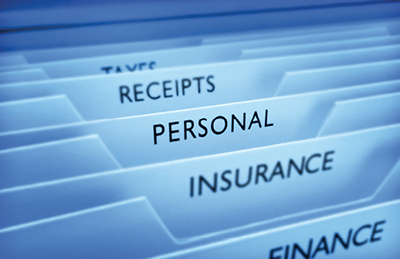What Records Should You Keep?
Guide G-228
Revised by Bryce Jorgensen and Lauren Rodriguez
College of Agricultural, Consumer and Environmental Sciences, New Mexico State University
Authors: Respectively, Extension Family Resource Management Specialist and Research Assistant, Department of Extension Family and Consumer Sciences, New Mexico State University. (Print Friendly PDF)
There are few hard-and-fast rules on what records to dispose of or to keep. Circumstances occur that we cannot anticipate, and they may require records. Newlyweds probably cannot imagine they may be involved in a contested divorce action in which they must prove which property is separate and which is community. We never expect to be involved in a lawsuit or a fight over the inheritance of property. Experiencing a home destroyed by fire or natural disaster is stressful enough, let alone trying to come up with important documents for insurance purposes. When important documents that are needed for applications for financial aid or food stamps are not found or have been discarded, we might need to go through time-consuming steps or risk having these applications be denied.
In trying to decide what to keep and what to discard, think in terms of which items might be needed in the future for proof of value, payment, cost, or ownership. This information may be needed for insurance claims, estate settlements, divorce actions, child support, tax assessments, capital gains or losses on investments or your home, food stamp applications, or tax audits. While the need to keep certain documents and the duration they should be kept may differ among individuals according to their needs, important documents should generally be divided into three categories: hyperactive file, active file, and safe deposit box.

© Dave Bredeson | Dreamstime.com
Hyperactive File
The hyperactive file contains receipts for goods and services that may require refunds in case they do not work as expected. Some receipts, such as grocery receipts and small cash items, can be thrown away as soon as you are sure that the goods do not need to be returned (i.e., they work fine, taste fine) and have recorded them in your monthly expense ledger. These receipts could be kept anywhere from a few days to a month in a kitchen drawer. Similarly, with ATM money deposit or withdrawal slips, you can throw these away after getting a receipt from your next transaction at the ATM, which will confirm your most recent transaction and amount in your bank account.
The latest and greatest thing is that stores, banks, and other businesses are going paperless and sending you your receipts via email or text. This latest transaction trend creates an eco-friendly environment, helps with less shredding, and creates a less congested mess in your purse or wallet. If you delete a receipt in your email, but you realized you need it for later verification, it can be easy to retrieve from your email’s trash folder. This latest advancement in banking technology provides a less time-consuming and less physically rigorous search effort to find receipts and the other types of documents we’ll discuss further.
Active File
Documents that are considered part of the active file are:
- Utility bills and receipts (keep for 1–3 months)
- Bank statements (keep for 7 years)
- Income tax-related documents: W-2, past years’ income tax returns, receipts related to flexible spending account (keep for 7 years)
- Employment records (keep for 7 years)
- Health benefit information: health benefits and insurance (replace annually with new statements), shot records (keep indefinitely)
- Debt-related information: credit card, mortgage, payday lending, educational loans (keep for 1–3 months and shred after checking for accuracy)
- Insurance policies: health, car, life, long-term disability (replace annually with new policy statements)
- Copies of important, “safe deposit box” items (see Safe Deposit Box section below) (keep indefinitely)
- Appliance manuals and warranties (keep indefinitely)
- Receipts of items under warranty: household appliances, computer, furniture (keep indefinitely)
- Education information: certificates, diplomas, transcripts (keep indefinitely)
- Other: receipts of expensive items, goods undergoing rebate process
Proof of payment, such as utility bills, rent receipts, and income statements, may be required for applications for programs such as educational financial assistance, bill payment assistance, and food stamps. Also, keep any records necessary for documentation of your income tax. The Internal Revenue Service can audit a return and assess additional tax up to six years after the date of the tax return. Records of investments are needed for tax purposes and for calculating capital gains or losses. Keep records of the date and purchase price of stocks, bonds, mutual funds, and other investments. If you receive additional shares of stock as a stock dividend or authorize a company to reinvest cash dividends in additional stock, record the dates and cost or value of the additional shares.
Households of limited income should keep their monthly (or periodical) bills, rent, and bank statements because applications for financial aid and food stamps usually require these documents for the past three months.
Safe Deposit Box
- Family documents: birth, marriage, and death certificates; adoption papers; divorce decrees
- Nationality documents: citizenship papers, passports, social security cards
- Wills
- Deeds and titles: home, vehicles, business
- Household inventory: names, serial numbers, and pictures of household items
- Veteran’s papers
- Financial papers: bonds and stock certificates
- Important contracts: personal loans, rental/lease agreements
The documents you will store in your safe deposit box need to be kept indefinitely. We obviously need to keep titles of assets for the duration that we own them. For big-ticket items, such as houses, cars, U.S. savings bonds, and businesses, we should keep a copy of their titles even once we no longer own them.
Check with your accountant or attorney concerning records you need to establish for estate tax purposes. Records relating to permanent improvements to your home should be kept. These will be needed (to determine the amount of capital gain or loss) for tax purposes when the home is sold. This also applies to other property you own.
A copy of your safe deposit box items should be kept in the active file. The original is usually kept at your attorney’s office or in your safe deposit box. We should also consider keeping electronic copies of these documents. Some documents are readily available in electronic form (e.g., insurance information, credit card statements, income statements), while others need to be scanned (e.g., titles, deeds, bonds, stocks). Be sure not to damage the documents when you scan them; that way they’re not considered invalid for later. You can save these documents on USB drives or store them online. Do not store the files only in your computer without creating a backup so you can retrieve the documents if your computer no longer works or is stolen.
An online cloud storage service is a good option because they typically have high security and large storage space for your personal documents. Storing online provides easy access to your documents on your smart phone when you download the site’s app, and you always have your documents backed up. Table 1 shows a comparison of the strengths and weakness of some of the top-rated and most-used online cloud storage sites.
|
Table 1. Cloud Storage Comparison |
|||||
|
OneDrive |
Dropbox |
Google Drive |
Box |
Amazon Cloud Drive |
|
|
File upload size restrictions |
20 GB |
20 GB* |
5 TB for most file types |
250 MB for free plan; paid plans have higher file size limits |
2 GB* |
|
Free storage |
5 GB |
2 GB |
15 GB |
10 GB |
No** |
|
Can I earn extra free storage? |
No |
Yes |
No |
No |
No |
|
Paid plans |
$1.99/month for 50 GB, $69.99/year for 1 TB; other plans available |
$9.99/month for 1 TB; lower rates are available if billed yearly |
$1.99/month for 100 GB, $9.99/month for 1 TB, $99.99/month for 10 TB |
$10/month for 100 GB |
$11.99/year for 100 GB, $59.99/year for 1 TB |
|
Operating systems supported |
Windows, Mac, Android, iOS, Windows Phone |
Windows, Mac, Linux, Android, iOS, Windows Phone, BlackBerry, Kindle Fire |
Windows, Mac, Android, iOS |
Windows, Mac, Android, iOS, Windows Phone, BlackBerry |
Windows, Mac, Android, iOS, Kindle Fire |
|
*There is no file size limit with desktop and/or mobile apps. **Amazon Cloud Drive offers free photo storage with an Amazon Prime subscription. Other storage is available via a paid subscription to Amazon Cloud Drive. Source: Adapted from Mitroff, 2016. |
|||||
If you choose online storage, be aware of the concerning rise of cyber attacks and security breaches and be cautious of the information you’re storing online (e.g., social security numbers, insurance claims, passport copies) that a potential thief could have access to. Learn ways to protect yourself to reduce the risk of online attacks and keep your personal information safe.
Whether you store your personal documents in an online storage cloud, a safe deposit box, or both, be organized in how you set up your filling. This will help you have an easy and stress-free experience retrieving the documents when you need them. Categorize and place the documents in designated files and delete or shred the documents you no longer need.
Reference
Mitroff, S. 2016, Feb. 1. OneDrive, Dropbox, Google Drive and Box: Which cloud storage service is right for you? [Online]. CNET.com. Available at https://www.cnet.com/how-to/onedrive-dropbox-google-drive-and-box-which-cloud-storage-service-is-right-for-you/
For further reading
G-229: Organize a Home Filing System
https://pubs.nmsu.edu/_g/G229/
G-532: Household Inventory
https://pubs.nmsu.edu/_g/G532/
CR-596: Managing Your Money: Keeping Records in Order
https://pubs.nmsu.edu/_circulars/CR596/

Bryce Jorgensen is the Extension Family Resource Management Specialist at NMSU. He earned his Ph.D. at Virginia Tech. As a consultant, trainer, author, and speaker, he focuses on achieving individual, relational, and financial wellness for New Mexicans. An expert in the psychology of change, mindset, and behavioral economics, he provides customized programs leading to life and financial success.
To find more resources for your business, home, or family, visit the College of Agricultural, Consumer and Environmental Sciences on the World Wide Web at pubs.nmsu.edu
Contents of publications may be freely reproduced for educational purposes. All other rights reserved. For permission to use publications for other purposes, contact pubs@nmsu.edu or the authors listed on the publication.
New Mexico State University is an equal opportunity/affirmative action employer and educator. NMSU and the U.S. Department of Agriculture cooperating.
Revised September 2018 Las Cruces, NM


